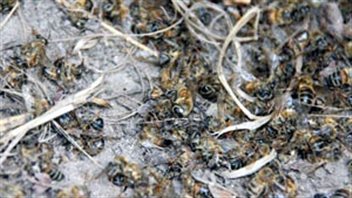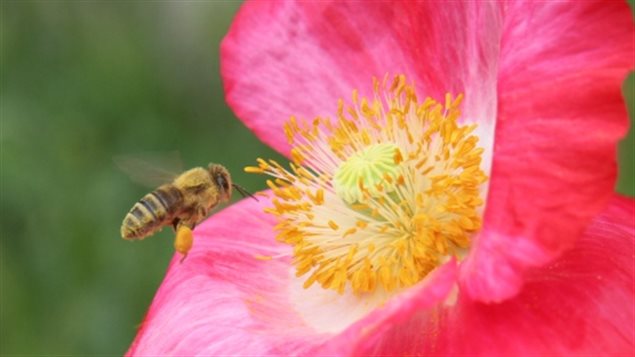A class-action lawsuit has been announced for Ontario beekeepers against the multinational agri-business giants Bayer Cropscience, Syngenta Canada, and their parent companies over the marketing of the suite of neonicotinoid pesticides.
The claim initiated by two large private honey producers on behalf of all Ontario apiculturalists alleges that the companies were negligent in their manufacture, sale and distribution of neonicotinoids in Ontario that caused beekeepers to suffer significant losses and damage.
Paula Lombardi is a partner in Siskinds LLP, the London Ontario legal firm acting on behalf of beekeepers.
Listen
While Ontario and other beekeepers have been reporting ever increasing bee losses in the years since neonicotinoids came on the market, Ontario beekeepers report this past winter losses of almost 60 percent of their hives.
The class-action lawsuit is seeking $450 million in damages from the companies, alleging that the pesticides have caused beekeepers to suffer massive financial and market loss due to:.
- – dead or weakened bees
- – contaminated wax, honeycombs and hives
- – reduced honey production and lost profits
- – costs incurred to meet honey and pollination contracts
- – increased labour, equipment and supply expenses
The family of nicotine-based pesticides are applied in various ways to plants, including being used as a coating on seeds. The pesticide dust rubbing off the seeds during planting has been shown to be blown into other non-treated fields and surrounding forest areas.

Unlike other chemicals which stay on the surface, neonicotinoids (neonics) are also absorbed within the plant.
When inects eat parts of the plant, or come in contact with pollen as is the case with bees, the chemical acts as a neuro-toxin either killing the insect or compromising the brain and nervous system which can lead to death in a variety of ways from getting lost, starvation, or in even lower doses, weaken the insect making it vulnerable to other disease or parasites.
The pesticides were also found in 70 per cent of dead bees tested by Health Canada in 2013.
In Ontario, neonicotinoids are applied to corn, soy and canola seeds, among others, and the pesticides are designed to interfere with the nervous system of insects that come into contact with the plants.
The class-action lawsuit has not yet been certified and the allegations have not been proven in court.







For reasons beyond our control, and for an undetermined period of time, our comment section is now closed. However, our social networks remain open to your contributions.